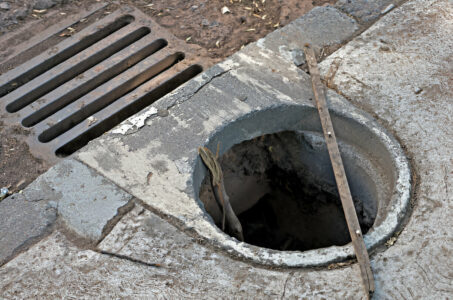Blocked drains are a common but urgent issue that can lead to significant disruptions if not addressed promptly. Immediate action is crucial to prevent further damage and restore normalcy. This article explores the importance of emergency drain unblocking, the methods available, and the best practices to prevent future emergencies.
Common Causes of Emergency Drain Blockages
Accumulation of Debris
Debris such as leaves, dirt, and hair can accumulate in drains over time, leading to blockages that require immediate attention.
Grease and Oil Buildup
In kitchens and industrial settings, grease and oil can solidify in drains, causing severe blockages.
Tree Roots Intrusion
Tree roots can grow into drainage pipes, obstructing water flow and causing blockages that often necessitate emergency unblocking.
Foreign Objects
Foreign objects like sanitary products, toys, and other items accidentally flushed down the drain can cause sudden blockages.
Signs That You Need Emergency Drain Unblocking
Slow Drainage
Water draining slowly from sinks, bathtubs, or toilets is a clear sign of a blockage.
Water Backup
Water backing up from drains indicates a severe blockage that needs immediate unblocking.
Unpleasant Odors
Foul smells from drains are often caused by trapped debris or stagnant water.
Gurgling Sounds
Unusual noises from drains can indicate air trapped by a blockage.
Why Immediate Action is Crucial
Preventing Property Damage
Blocked drains can lead to water overflow, causing damage to floors, walls, and other parts of your property.
Avoiding Health Hazards
Stagnant water and sewage backups can pose serious health risks, including exposure to harmful bacteria and mold growth.
Reducing Repair Costs
Addressing blockages promptly can prevent the need for more extensive and costly repairs down the line.
Maintaining Daily Operations
In commercial settings, blocked drains can disrupt daily operations, leading to lost productivity and revenue.
DIY Emergency Drain Unblocking Methods
Using a Plunger
A plunger is a simple but effective tool for dislodging minor blockages in sinks and toilets.
Baking Soda and Vinegar Solution
Pouring a mixture of baking soda and vinegar down the drain can help dissolve minor blockages.
Boiling Water
Pouring boiling water down the drain can melt grease and clear minor obstructions.
Manual Removal of Debris
If the blockage is near the drain opening, you can manually remove debris using gloves and a drain snake.
Professional Emergency Drain Unblocking Services
When to Call a Professional
If DIY methods fail or the blockage is severe, it’s time to call a professional for emergency unblocking.
Types of Services Offered
Professional services may include drain snaking, hydro jetting, and CCTV inspections to identify and clear blockages.
Benefits of Professional Services
Professionals have the expertise and equipment to handle severe blockages quickly and effectively.
How to Choose the Right Service Provider
Look for providers with good reviews, proper licensing, and a guarantee of their work.
Tools and Equipment for Emergency Drain Unblocking
Plungers
Plungers create pressure to dislodge blockages and are essential for minor emergencies.
Drain Snakes and Augers
These tools can reach deeper into the drain to remove more stubborn blockages.
Hydro Jetting Machines
Hydro jetting uses high-pressure water jets to clear blockages and clean drain walls.
CCTV Drain Cameras
CCTV cameras help professionals inspect the inside of drains to identify the blockage’s location and nature.
Preventive Measures to Avoid Future Emergencies
Regular Maintenance
Schedule regular inspections and cleanings to keep drains clear.
Proper Waste Disposal
Avoid flushing non-degradable items and dispose of grease and oil properly.
Installing Drain Guards
Drain guards can catch debris before it enters the drain, preventing blockages.
Routine Inspections
Regular inspections can identify potential issues before they become emergencies.
Safety Considerations During Emergency Unblocking
Personal Protective Equipment (PPE)
Always wear gloves, goggles, and other PPE when dealing with blocked drains.
Handling Chemicals Safely
Use chemicals as directed and ensure good ventilation to avoid harmful fumes.
Avoiding Injury During DIY Methods
Follow proper techniques to avoid injury when using tools like plungers and drain snakes.
Understanding Potential Risks
Be aware of the risks associated with blocked drains, including exposure to harmful substances.
Environmental Impact of Emergency Drain Unblocking
Eco-Friendly Unblocking Methods
Choose environmentally friendly methods and chemicals that minimize harm to the environment.
Proper Disposal of Waste Materials
Dispose of waste materials properly to prevent environmental contamination.
Reducing Environmental Footprint
Implement practices that reduce the environmental impact of unblocking activities.
Cost Considerations
Comparing DIY vs. Professional Costs
DIY methods may be cheaper but can be less effective for severe blockages, potentially leading to higher costs later.
Factors Affecting Service Costs
Factors include the blockage’s severity, location, and the methods used for unblocking.
Tips for Cost-Effective Unblocking
Preventive measures and regular maintenance can reduce the frequency and cost of emergency unblocking.
Conclusion!!
Emergency drain unblocking is essential for maintaining functional and safe drainage systems. Understanding the causes of blockages, recognizing the signs, and taking immediate action can prevent significant damage and health risks. Whether you opt for DIY methods or professional services, proactive maintenance and proper waste disposal practices are key to preventing future emergencies. By prioritizing safety and environmental considerations, you can ensure effective and sustainable drain unblocking solutions.
FAQs
- What are common causes of emergency drain blockages?
- Common causes include debris accumulation, grease and oil buildup, tree roots intrusion, and foreign objects.
- How can I tell if I need emergency drain unblocking?
- Signs include slow drainage, water backup, unpleasant odors, and gurgling sounds from drains.
- What are the best DIY methods for emergency drain unblocking?
- Effective DIY methods include using a plunger, pouring boiling water, and using a baking soda and vinegar solution.
- When should I call a professional for emergency drain unblocking?
- Call a professional if DIY methods fail or if the blockage is severe and causing significant issues.
- How can I prevent future drain blockages?
- Preventive measures include regular maintenance, proper waste disposal, installing drain guards, and routine inspections.







